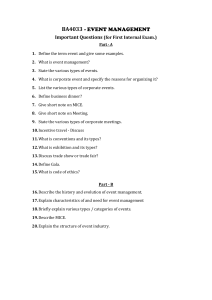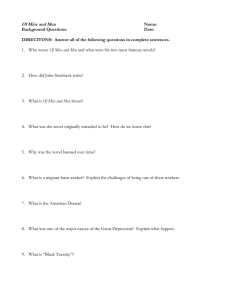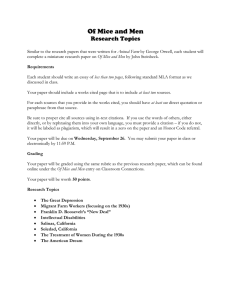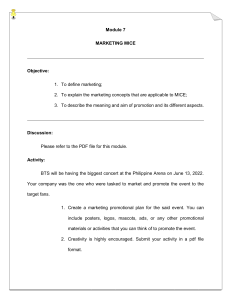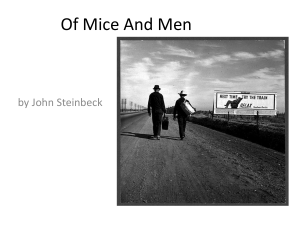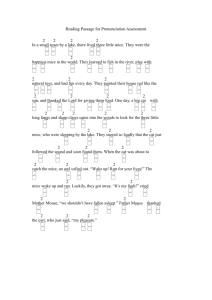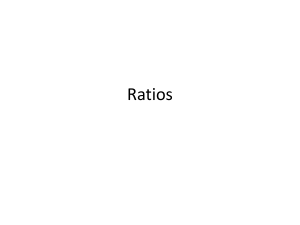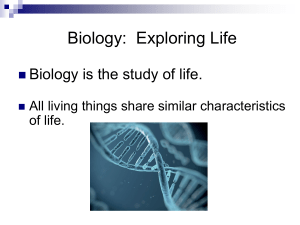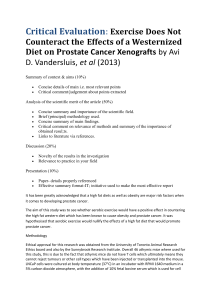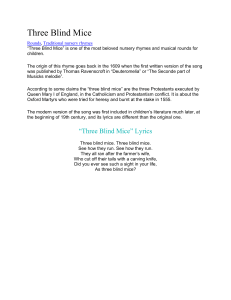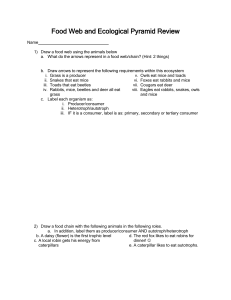Question A psychologist makes the following assumptions
advertisement
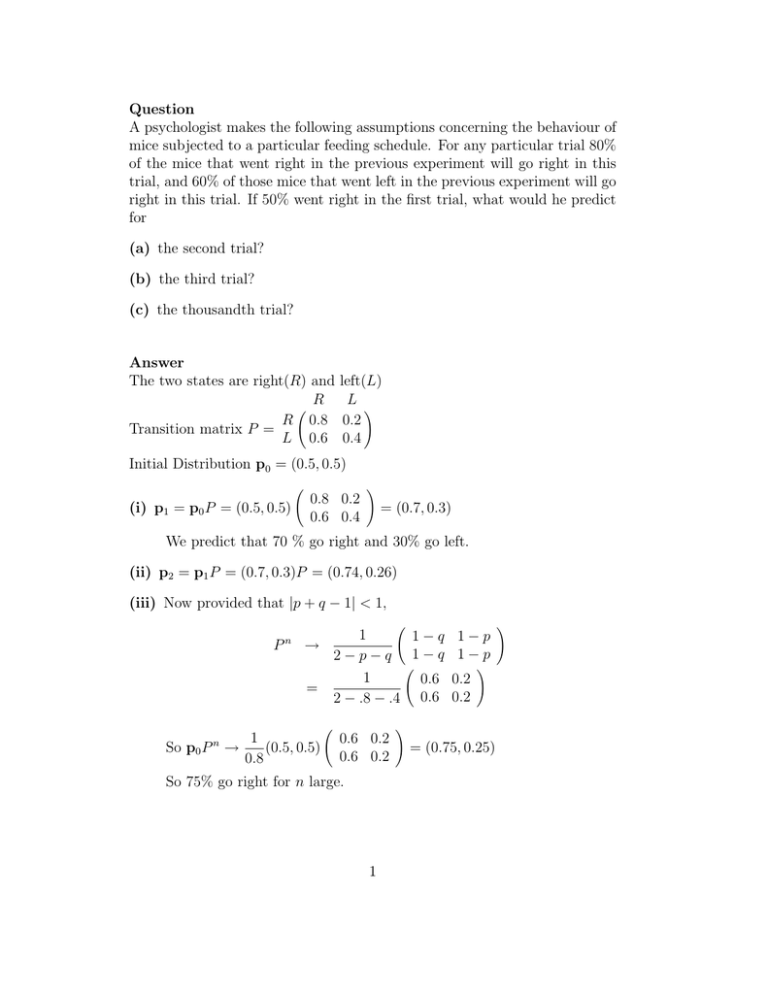
Question A psychologist makes the following assumptions concerning the behaviour of mice subjected to a particular feeding schedule. For any particular trial 80% of the mice that went right in the previous experiment will go right in this trial, and 60% of those mice that went left in the previous experiment will go right in this trial. If 50% went right in the first trial, what would he predict for (a) the second trial? (b) the third trial? (c) the thousandth trial? Answer The two states are right(R) and R à R 0.8 Transition matrix P = L 0.6 left(L) L ! 0.2 0.4 Initial Distribution p0 = (0.5, 0.5) (i) p1 = p0 P = (0.5, 0.5) à 0.8 0.2 0.6 0.4 ! = (0.7, 0.3) We predict that 70 % go right and 30% go left. (ii) p2 = p1 P = (0.7, 0.3)P = (0.74, 0.26) (iii) Now provided that |p + q − 1| < 1, P n 1 So p0 P → (0.5, 0.5) 0.8 n à 1 1−q → 2−p−q 1−q à 1 0.6 = 0.6 2 − .8 − .4 à 0.6 0.2 0.6 0.2 So 75% go right for n large. 1 ! 1−p 1−p 0.2 0.2 ! = (0.75, 0.25) !
